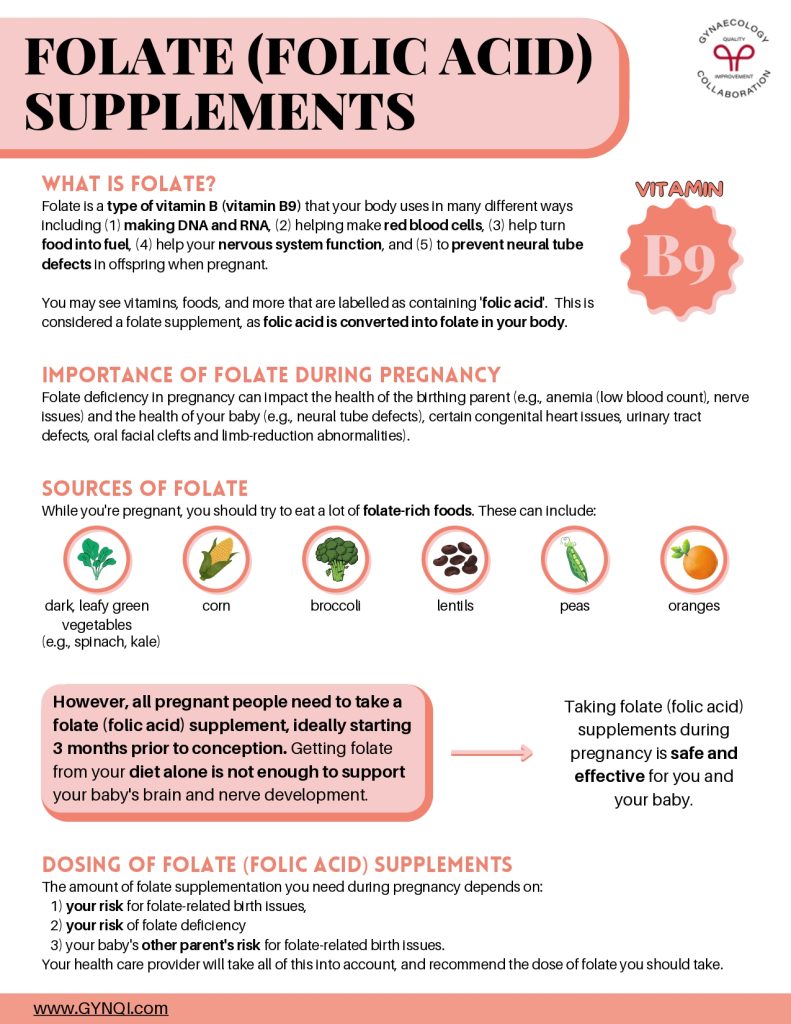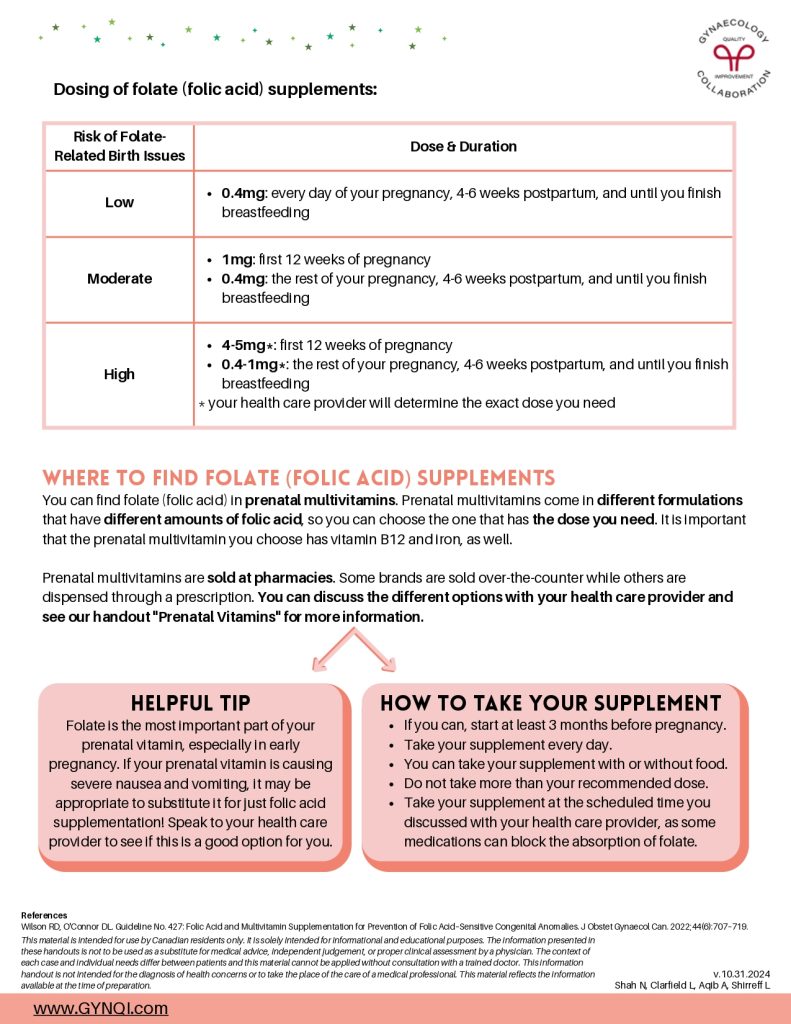
Folate (Folic Acid) Supplements
What is Folate?
Folate is a type of vitamin B (vitamin B9) that your body uses in many different ways including (1) making DNA and RNA, (2) helping make red blood cells, (3) help turn food into fuel, (4) help your nervous system function, and (5) to prevent neural tube defects in offspring when pregnant.
You may see vitamins, foods, and more that are labelled as containing ‘folic acid‘. This is considered a folate supplement, as folic acid is converted into folate in your body.
Importance of Folate During Pregnancy
Folate deficiency in pregnancy can impact the health of the birthing parent (e.g., anemia (low blood count), nerve issues) and the health of your baby (e.g., neural tube defects), certain congenital heart issues, urinary tract defects, oral facial clefts and limb-reduction abnormalities).
Sources of Folate
While you’re pregnant, you should try to eat a lot of folate-rich foods. These can include:
- Dark, leafy green vegetables (e.g., spinach, kale)
- Corn
- Broccoli
- Lentils
- Peas
- Oranges
However, all pregnant people need to take a folate (folic acid) supplement, ideally starting 3 months prior to conception. Getting folate from your diet alone is not enough to support your baby’s brain and nerve development.
Taking folate (folic acid) supplements during pregnancy is safe and effective for you and your baby.
Dosing of Folate (Folic Acid) Supplements
The amount of folate supplementation you need during pregnancy depends on:
1) your risk for folate-related birth issues,
2) your risk of folate deficiency
3) your baby’s other parent’s risk for folate-related birth issues.
Your health care provider will take all of this into account, and recommend the dose of folate you should take.
| Risk of Folate-Related Birth Issues | Dose & Duration |
| Low |
|
| Moderate |
|
| High |
* your health care provider will determine the eact dose you need |
Where to Find Folate (Folic Acid) Supplements
You can find folate (folic acid) in prenatal multivitamins. Prenatal multivitamins come in different formulations that have different amounts of folic acid, so you can choose the one that has the dose you need. It is important that the prenatal multivitamin you choose has vitamin B12 and iron, as well.
Prenatal multivitamins are sold at pharmacies. Some brands are sold over-the-counter while others are dispensed through a prescription. You can discuss the different options with your health care provider and see our handout “Prenatal Vitamins” for more information.
Helpful Tip
Folate is the most important part of your prenatal vitamin, especially in early pregnancy. If your prenatal vitamin is causing severe nausea and vomiting, it may be appropriate to substitute it for just folic acid supplementation! Speak to your health care provider to see if this is a good option for you.
How to Take Your Supplement
- If you can, start at least 3 months before pregnancy.
- Take your supplement every day.
- You can take your supplement with or without food.
- Do not take more than your recommended dose.
- Take your supplement at the scheduled time you discussed with your health care provider, as some medications can block the absorption of folate.




